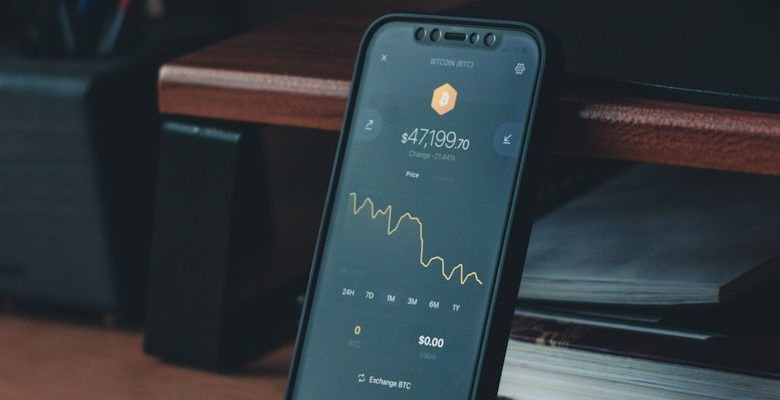The Potential for Blockchain to Disrupt the Healthcare Industry

- Understanding Blockchain Technology
- Current Challenges in the Healthcare Industry
- Benefits of Implementing Blockchain in Healthcare
- Security and Privacy Concerns in Healthcare Data
- Real-world Applications of Blockchain in Healthcare
- Future Outlook: How Blockchain is Revolutionizing Healthcare
Understanding Blockchain Technology
Blockchain technology is a decentralized, distributed ledger that records transactions across a network of computers. Each transaction is stored in a block, which is then linked to the previous block, creating a chain of blocks – hence the name “blockchain.” This technology ensures transparency, security, and immutability of data, making it ideal for industries like healthcare.
One of the key features of blockchain technology is its ability to create a secure and tamper-proof record of transactions. In the healthcare industry, this can be particularly beneficial for storing sensitive patient information, such as medical histories, test results, and treatment plans. By using blockchain, healthcare providers can ensure that patient data is secure and only accessible to authorized personnel.
Another advantage of blockchain technology in healthcare is its potential to streamline processes and reduce administrative costs. With blockchain, healthcare organizations can eliminate the need for intermediaries in data sharing and transactions, saving time and resources. This can lead to more efficient operations and improved patient care.
Furthermore, blockchain technology can enable interoperability among different healthcare systems and providers. By using a shared blockchain network, healthcare organizations can securely exchange data and communicate with each other in real-time. This can lead to better coordination of care and improved outcomes for patients.
Overall, blockchain technology has the potential to disrupt the healthcare industry by revolutionizing how data is stored, shared, and managed. By leveraging the security and transparency of blockchain, healthcare organizations can enhance patient privacy, improve efficiency, and drive innovation in the delivery of care. As the technology continues to evolve, it will be interesting to see how blockchain transforms the healthcare landscape in the years to come.
Current Challenges in the Healthcare Industry
The healthcare industry faces several challenges that hinder its efficiency and effectiveness. These challenges include:
- **Interoperability**: The lack of interoperability between different healthcare systems and providers makes it difficult to securely share and access patient data. This leads to fragmented care and potential errors in treatment.
- **Data Security**: The healthcare industry is a prime target for cyber attacks due to the sensitive nature of the information it holds. Data breaches can result in compromised patient privacy and trust.
- **Regulatory Compliance**: Healthcare organizations must adhere to strict regulatory requirements to ensure patient safety and quality of care. However, compliance can be burdensome and costly.
- **Administrative Burden**: Healthcare providers spend a significant amount of time on administrative tasks such as billing and insurance claims, taking away time from patient care.
These challenges highlight the need for innovative solutions to transform the healthcare industry and improve outcomes for both patients and providers. Blockchain technology has the potential to address many of these challenges by providing a secure and decentralized platform for storing and sharing healthcare data.
Benefits of Implementing Blockchain in Healthcare
Implementing blockchain technology in the healthcare industry can bring about numerous benefits that have the potential to revolutionize the way healthcare data is managed and shared. Some of the key advantages of integrating blockchain in healthcare include:
- Increased data security: Blockchain technology uses advanced cryptographic techniques to secure data, making it nearly impossible for unauthorized parties to access or manipulate sensitive information.
- Improved interoperability: By creating a unified and secure system for storing and sharing data, blockchain can enhance interoperability between different healthcare providers and systems, leading to better coordination of care.
- Enhanced data integrity: The decentralized nature of blockchain ensures that data remains tamper-proof and transparent, reducing the risk of errors or fraud in medical records.
- Streamlined processes: Blockchain smart contracts can automate and streamline administrative tasks such as insurance claims processing and billing, reducing paperwork and administrative costs.
- Better patient outcomes: With secure and easily accessible health records, healthcare providers can make more informed decisions and provide personalized care to patients, leading to improved health outcomes.
Overall, incorporating blockchain technology in healthcare has the potential to significantly improve data security, interoperability, data integrity, streamline processes, and ultimately enhance patient care. As the healthcare industry continues to evolve, adopting blockchain can help address some of the longstanding challenges and inefficiencies in the system.
Security and Privacy Concerns in Healthcare Data
Security and privacy concerns in healthcare data are paramount when considering the implementation of new technologies such as blockchain. With the increasing digitization of medical records and the sharing of sensitive patient information, the risk of data breaches and unauthorized access is a significant worry for healthcare providers and patients alike.
Blockchain technology offers a potential solution to these concerns by providing a secure and decentralized platform for storing and sharing healthcare data. By using cryptographic techniques and distributed ledger technology, blockchain can help ensure the integrity and confidentiality of patient information, reducing the risk of data breaches and unauthorized access.
One of the key benefits of blockchain in healthcare is its ability to provide transparency and traceability of data access. This can help healthcare providers track who has accessed patient information and when, helping to prevent unauthorized access and potential breaches. Additionally, blockchain can enable patients to have more control over their own data, allowing them to securely share their information with trusted healthcare providers as needed.
Despite the potential benefits of blockchain in addressing security and privacy concerns in healthcare data, there are still challenges to overcome. These include regulatory hurdles, interoperability issues, and the need for industry-wide standards and best practices. However, with continued innovation and collaboration within the healthcare industry, blockchain has the potential to disrupt the way healthcare data is managed and secured, ultimately benefiting both providers and patients.
Real-world Applications of Blockchain in Healthcare
Blockchain technology has shown great promise in revolutionizing the healthcare industry. Its decentralized and secure nature opens up a plethora of real-world applications that can streamline processes, improve data integrity, and enhance patient care. Below are some key areas where blockchain can make a significant impact in healthcare:
- Electronic Health Records (EHRs): Blockchain can provide a secure and tamper-proof platform for storing and sharing electronic health records. This can ensure that patient data is accurate, up-to-date, and easily accessible to authorized healthcare providers.
- Supply Chain Management: By using blockchain, healthcare organizations can track the flow of pharmaceuticals, medical devices, and other supplies throughout the supply chain. This can help prevent counterfeit products, reduce errors, and improve transparency.
- Clinical Trials: Blockchain technology can streamline the process of conducting clinical trials by securely recording and sharing data among researchers, sponsors, and regulatory authorities. This can lead to faster and more efficient drug development processes.
- Telemedicine: Blockchain can facilitate secure and transparent telemedicine transactions by providing a decentralized platform for patients and healthcare providers to interact. This can help improve access to healthcare services, especially in remote areas.
- Billing and Claims Processing: Blockchain can automate and streamline the billing and claims processing in healthcare, reducing administrative costs, eliminating fraud, and improving transparency in financial transactions.
These are just a few examples of how blockchain technology can disrupt the healthcare industry and bring about significant improvements in efficiency, security, and patient outcomes. As more healthcare organizations adopt blockchain solutions, we can expect to see a transformation in the way healthcare is delivered and managed.
Future Outlook: How Blockchain is Revolutionizing Healthcare
Looking ahead, the future outlook for blockchain in healthcare is promising. This technology has the potential to revolutionize the industry by improving data security, interoperability, and transparency. As blockchain continues to gain traction, we can expect to see significant advancements in areas such as medical records management, drug traceability, and patient consent management.
One of the key benefits of blockchain in healthcare is its ability to enhance data security. By using encrypted blocks of information that are linked together in a secure chain, blockchain can help protect sensitive patient data from cyber attacks and unauthorized access. This increased security can help build trust among patients, healthcare providers, and other stakeholders in the industry.
Another area where blockchain is making an impact is in improving interoperability between different healthcare systems. By providing a decentralized and standardized platform for sharing data, blockchain can help break down silos between healthcare organizations and enable seamless data exchange. This can lead to better coordination of care, reduced medical errors, and improved patient outcomes.
Furthermore, blockchain technology can enhance transparency in the healthcare industry by creating an immutable record of transactions and data exchanges. This can help prevent fraud, ensure compliance with regulations, and increase accountability among all parties involved in the healthcare ecosystem. Patients can also benefit from greater transparency by having more visibility into their own health data and treatment options.
In conclusion, the future of blockchain in healthcare looks bright. As more organizations adopt this innovative technology, we can expect to see a transformation in how healthcare data is managed, shared, and secured. With its potential to disrupt the industry in a positive way, blockchain is poised to revolutionize healthcare for the better.



